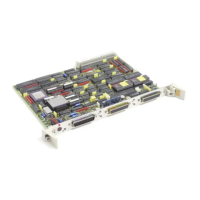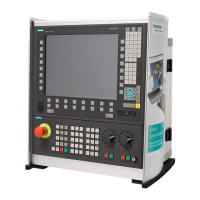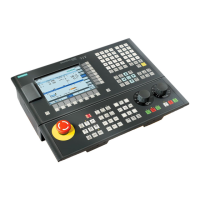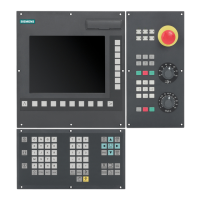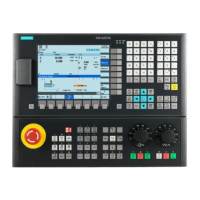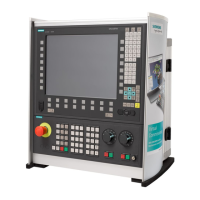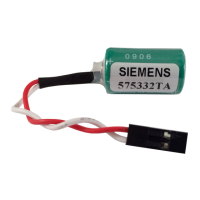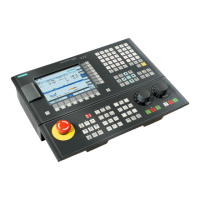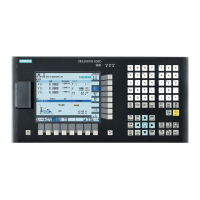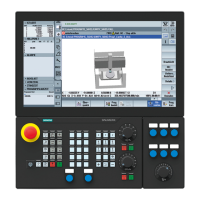01.93 5 Switching, Auxiliary and Miscellaneous Functions
5.4 Auxiliary function H
5.4 Auxiliary function H
One auxiliary function per block can be entered under address H for machine switching func-
tions or movements not covered by numerical control. H can be programmed with up to 8 dec-
ades. The meaning of the functions is described in the Programming Guide of the machine
tool manufacturer.
The extended address notation can be used for the H word: H..=...
5.5 Tool number T
The tool number determines the tool required for a machining operation:
Tool number (max. 8 decades)
T 1234
Address
The extended address notation can be used for the T word: T..=...
5.6 Rapid auxiliary functions
(from SINUMERIK 880 GA2)
You can define the auxiliary functions D, F, H, M, S and T individually as rapid or slow. You
can place several auxiliary functions in one block but you can only activate the function if all
auxiliary functions are defined as rapid.
You can set the output of D F S and T functions to be rapid or slow in machine data. A minus
sign must be programmed for H and M functions . If you place a minus sign in front of the
number of a D, F, S or T function, the alarms 3241 to 3246 will be output.
Auxiliary
function
R parameter
contents
Rapid auxiliary
functions
Error
M = R14 113 no no
M = -R14 113 yes no
M = R14 - 113 yes no
M = -R14 - 113 no no
M = 03 no no
M = 03
--- yes
M = -03 yes no
M = -03
--- yes
M -03 yes no
Note:
• No rapid auxiliary functions are output in blocks with program coordination calls
• It is not possible to program M02/M30 as a rapid auxiliary function
• The auxiliary functions collected during a block search are not output quickly
• Graphic simulation does not have rapid auxiliary function output
• The auxiliary functions M00, M01, M17 can be programmed as rapid or as slow functions
• In part program blocks from which G functions are to be read using FB69, the auxiliary
functions must be output slowly.
© Siemens AG 1991 All Rights Reserved 6ZB5 410-0HD02 5–5
SINUMERIK 880, (PG)

